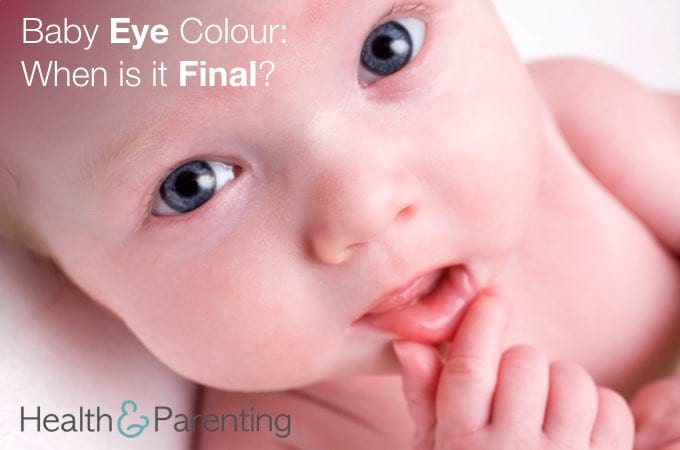When your baby was born, you probably spent hours trying to work out who she looked out. Does she have your nose? Your partner’s chin? Her grandma’s smile? It can be fascinating to see who she has inherited her features from, especially after you’ve spent nine long months wondering who she would take after.
Eye color at birth
Caucasian babies are usually born with either gray or blue eyes. They may be light colored or appear murky to begin with, but this doesn’t mean they’ll stay that way for life. African American, Asian and Hispanic babies may be born with darker eyes though they can also be blue at first. In the womb, your baby won’t produce much, if any, melanin, and it’s this pigment that darkens the color of your baby’s eyes. After spending nine months in a dark womb, your baby will start producing melanin after the birth, and once she’s in the light for the first time.
When will they change color?
The color of your baby’s eyes was determined at the moment of conception because it is a genetic trait. Although it has been determined since that very first moment, you may have to wait a little longer to discover what color they will finally be. In fact, it can take until your child’s third birthday until you can say with certainty what color eyes she has.
Most babies, however, have their permanent eye color by the time they turn one. The eyes may stay blue for a number of months, but as your baby’s body starts producing more melanin, the color of her eyes may change. It is most common for eye color to change between the age of six and nine months. It won’t happen overnight, but will be a gradual change of color that isn’t all too noticeable until one day your baby’s eyes have changed color.
What determines eye color
Eye color is determined by genetics. If you and your partner both have blue eyes, chances are your baby will have blue eyes too, though it’s not guaranteed. If a grandparent has blue eyes, this increases the odds that your baby will have blue eyes. The same theory applies if you both have brown eyes, then your baby is likely to inherit brown eyes. If one of you has brown eyes and the other has blue, your baby is believed to have an equal chance of having brown or blue eyes. Green is the rarest eye color, with an estimated 2% of the world’s population having this eye color.
What color do you think your baby’s eyes will be?
Written by Fiona (@Fiona_Peacock), mother, writer and lover of all things baby related.
This information is not intended to replace the advice of a trained medical doctor. Health & Parenting Ltd disclaims any liability for the decisions you make based on this information, which is provided to you on a general information basis only and not as a substitute for personalized medical advice. All contents copyright © Health & Parenting Ltd 2016. All rights reserved.










